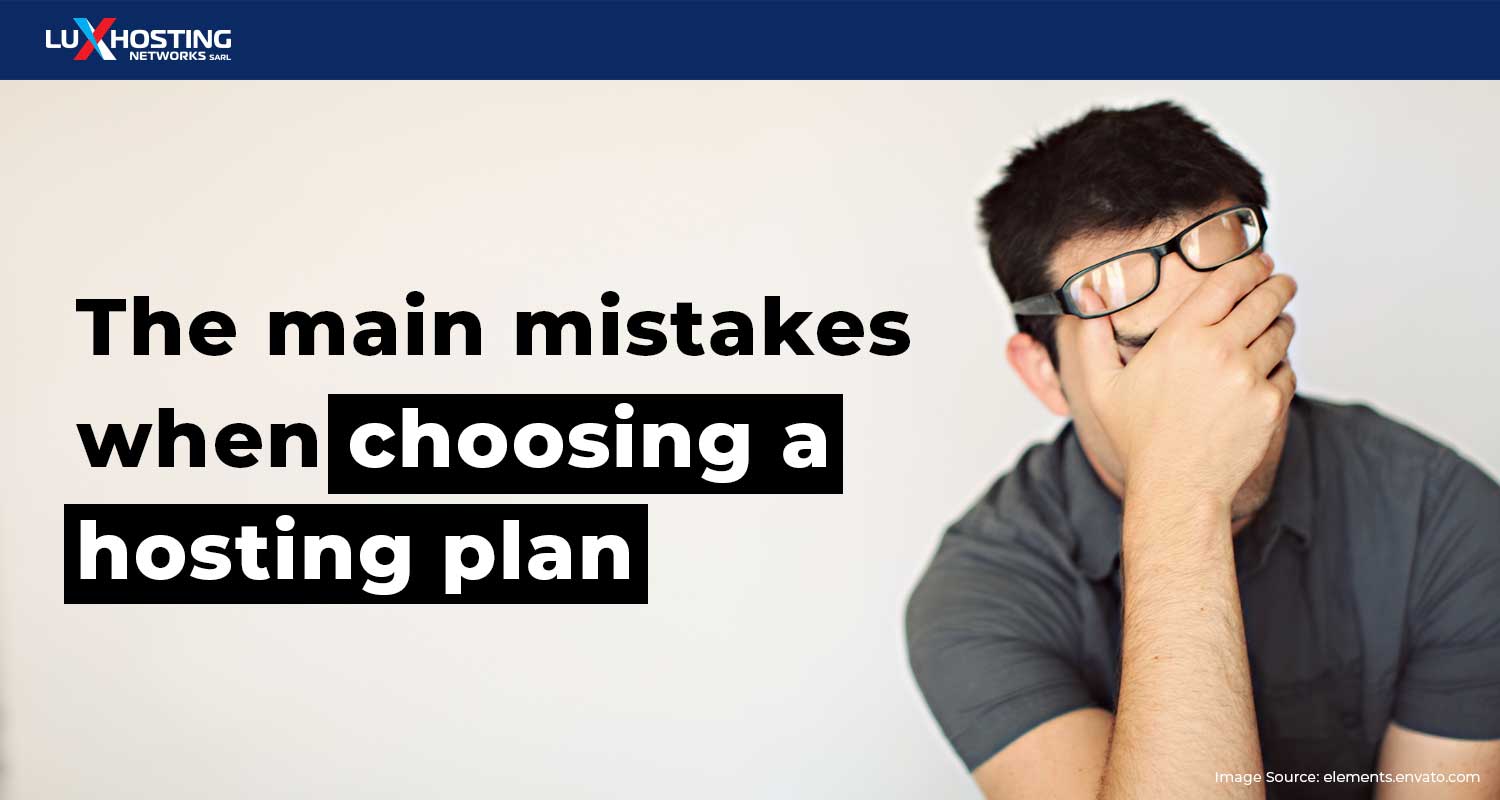In this modern era, where everything is online, people need webhosting platforms to do their online business. But the first thing that comes to mind is what is hosting and how to choose a webhosting as a beginner. The choice of a top Web Host is critical to your online business. A defective web host service may harm your website by creating continuous interruptions, slowing down your site's performance, and providing a terrible customer experience, among other things. Even if you intend to create a web blog, a shopping site, a company website, a business portfolio, or any other type of website, be sure that the platform you select is robust, economical, and trustworthy. Choosing a web host is challenging, especially when there are so many web hosts on the market, all claiming to provide world-class solutions. In this circumstance, website owners eventually succumb to the false promises and promises supplied by low website hosting services companies on the internet and subsequently regret their decision. In this blog, we'll go through the top eight mistakes you must consider when picking a web host for your business. Also, will explain everything about Web hosting to make sure you will get the best out of them.
What is hosting?
Web hosting is a service that allows people and businesses to publish a website or web page on the World Wide Web. Furthermore, web hosting meaning a web host offers all of the services required for a website or webpage to be published on the internet. What should you consider when selecting a web host? These are the considerations you should make while selecting a web host:
- Your website's requirements
- How customizable are their plans?
- Their registration and renewal price
- Their refund policy/free trials
- What features they provide
- Website backups
- Customer service quality
- Server speed and responsiveness
8 Common mistakes to avoid
[caption id="attachment_9882" align="aligncenter" width="600"] Image source: elements.envato.com[/caption] These are the following most prominent hosting mistakes to avoid:
Image source: elements.envato.com[/caption] These are the following most prominent hosting mistakes to avoid:
1. Selecting a Free Web Hosting
Luckily, we've recently come across minimal free Web hosting. Yes, there are plenty of free hosting options available in the market. But we highly recommend You don't pick them. The insanely "excellent deal" may appear genuine at first, but it's sure to produce plenty of issues down the road:
- If your site's bandwidth is exceeded, it will be extremely sluggish, and it may even close down. You and your company would feel the consequences since you'd be totally reliant on a substandard web host.
- Without your consent, the host can and will place third-party advertising on your site at any moment.
- You won't be able to expand your website as your company grows.
- Your Rankings may suffer as a result.
- It's possible that you won't be powerful enough to run the functions you require.
- Don't be fooled by "free" hosting services if you want independence, dependability, and expansion possibilities.
2. Ignoring the Customer Service Quality
Testing the customer experience is a fantastic approach to see if a hosting plan is appropriate for you. If you don't do this, you could find that when you have problems with your site, later on, there's no one to rescue you. Although a host may promise to give help 24 hours a day, it's good to test this out before committing to them. Examine the company's website, read their FAQs, and compile a list of queries that haven't been addressed yet. Use every possible method to approach them with your queries – cellphone, mail, web chat, anything they recommend – and observe how rapidly and effortlessly they answer. Furthermore, Keep an eye out for feedback on the seller's customer support, server uptimes, and even how quickly webpages load when hosted on their servers because it is the best way to hunt the finest website hosting platform for your website.
3. Price prevails above everything else
When picking a web host for your website, never let price be the primary concern. Certainly, low-cost plans are convenient, but there's a distinction to be made between "cheap" and "expensive." An excellent web host cannot give fine service to its good consumers without a minimal quantity of money. For any type of hosting, prices as low as $1 – $3 are unacceptably low. If web hosts indeed provided what they say for such cheap costs, they would instead serve drinks than webhosting services. Something just under $5 strikes you as too low. At the same time, most well-known companies charge more money for a "premium" Webhosting service that includes industry-leading features. And the additional cost is warranted if the features are truly beneficial to your website. So, always choose a web host service provider that offers features and flexible price options.4. Purchasing a subscription for a longer duration If you have no past experience with a domain registration business, do not sign up for an annual plan and give payment in advance. In most situations, getting your money back (via refunding) is quite tricky, so if you pay for a long-term Web hosting service in advance, you may end up wasting even more money on a terrible web host. Then you'll have to utilize the service for a year since you won't be able to get your cashback if you only use it for a month. So always purchase a hosting plan for the only month to try out a host's product quality, and if you're happy with them, you may upgrade to an annual subscription plan afterwards. Do not sign up for a webhosting service that does not need you to pay at least once a month.
5. Choosing the correct type of hosting
Most newcomers are unaware that there is a variety of hosting options available. VPS and Shared hosting are the major categories of hosting services. Once you've settled on a web host, the most typical error is not selecting the appropriate hosting package. A shared plan comes with the most affordable hosting options, and it's ideal for small websites and blogs. If you're just getting started, it's best to opt for a low-cost shared hosting plan to save money. However, suppose you anticipate rapid development and blossom in your business. In that case, you should consider upgrading to a higher hosting plan, such as VPS hosting or Cloud hosting, to meet your site's expanding demands. VPS hosting provides a virtual private server for businesses with several visitors and a lot of information. You may convert to a virtual remote server at any moment if your tiny website expands in the later. Along with the kind of web host, the various features of the hosting plan must also be considered. For example, a low-cost shared hosting service could not include live chat assistance, a free domain name, a free SSL certificate, or privacy protection, among other things.
6. No cash assurance
Only a handful of hosts do not offer a funds assurance or deferred payment. Choosing a hosting service company that does not provide a money-back or deferred payment is a significant mistake. Let's say you're unhappy with the service provided by your chosen host and wish to terminate your hosting account, and want your money back. You will have to forfeit your damn difficult cash in this case since you choose a web host that does not offer a funds assurance.
A money-back guarantee implies you may get your money back if you are dissatisfied with the service or for any other reason.
Make sure you read the or deferred payment and refund policies carefully to understand the terms and circumstances. Many web hosts provide refunds and money-back guarantees after a specified length of time, such as up to two months, while some hosts offer money-back guarantees at any time.
7. Neglecting security concerns
One of the most typical blunders made when selecting a Web hosting service is failing to evaluate whether or not the hosting company is trustworthy. Conducting financial transactions is tightly regulated and subject to stringent security standards. However, if you're going to operate a personal blog, you shouldn't entirely disregard security aspects. At the very least, you'll need spam prevention and an SSL certificate to encrypt your traffic. These days, cybercrime is a huge cash cow. Sending an uncomfortable email to your clients notifying them that their credit card data has been stolen is the last thing you would like to do. Doesn't that seem a little far-fetched? When Home Depot failed to obtain 50 million cards in 2014, it had to do just that. Regardless of your business, carefully analyse possible Web hosting providers' security measures to verify they meet your unique requirements. They must, at the absolute least, provide secure socket layers (SSL). Luxhosting is an excellent example of a web host that prioritizes security.
8. Looking for an offer with unlimited space
 People that are passionate about blogging and have an immense database interest in it. And desire the most significant architecture for their sites. They believe that Web Hosts who claim to give UNLIMITED 'everything' are the finest to host their websites. In the real world, phrases like "unlimited" don't work in the Web Hosting market. Allowing clients to host an infinite number of domains on a hosting account, let alone providing them with limitless storage and bandwidth, is unfeasible.
People that are passionate about blogging and have an immense database interest in it. And desire the most significant architecture for their sites. They believe that Web Hosts who claim to give UNLIMITED 'everything' are the finest to host their websites. In the real world, phrases like "unlimited" don't work in the Web Hosting market. Allowing clients to host an infinite number of domains on a hosting account, let alone providing them with limitless storage and bandwidth, is unfeasible.
5 Types of Web Hosting
1. Shared web hosting
Shared webhosting is one of the most widely used hostings in the world. The primary reason is it is an ideal choice for most small businesses and websites. It essentially implies that you share some of your memory, system space, data storage, and other resources with others. Shared webhosting is quite user-friendly, so you won't need to know much about coding. Furthermore, the host is also in charge of server maintenance and management. The advantage of shared hosting is that it is relatively inexpensive because the web host splits the server's fees evenly.
2. VPS hosting
VPS stands for Virtual Private Server Hosting. Although you still share a server with others using a VPS, your web host will offer you a distinct partition on the server. In addition, you will have dedicated server space, which will allow you to reserve computer power and memory. VPS hosting is the ideal option for medium-sized businesses with rapidly growing websites. VPS Hosting also has a high level of scalability and comes with a fully customised server. In a nutshell, VPS hosting is more reliable and stable than shared hosting.
3. Dedicated server hosting
Larger companies typically utilize dedicated server hosting to launch and maintain large websites that receive a lot of traffic. The owner has full access to where the website is kept with this hosting. Additionally, the owner has full admin and root access. As a result, the owner has complete control over the process, allowing for speedier execution and more security. One of the most significant advantages of dedicated hosting is that there is no risk of a harmful neighbour effect because website resources are not shared with others.
4. Cloud hosting
Because of its dependability, cloud hosting is presently the most popular hosting service on the market. Simply put, it's the same as VPS hosting because virtual machines are employed in this type. With cloud hosting, a web host provider provides a cluster of servers. All of your data and resources are duplicated on each server.
5. WordPress hosting
Shared webhosting is quite identical to WordPress. Because of the widespread use of WordPress sites, this hosting was explicitly designed for WordPress site owners. WordPress Hosting supplies SEO, security, backups, and experience in all aspects of website management.
The bottom line
When it comes to selecting a Web hosting business, there are no definitive answers. In the end, everything boils down to your company's needs and monthly cost. Keep the above tips in mind while searching for a web host, and you'll be better prepared to make the best decision for your internet business.
Key takeaway
In conclusion, we have created the following advice to help you understand how to choose a webhosting company more accurately. Furthermore, examine your intentions for going forward now that you have all of the aforementioned essential factors in mind when choosing the finest hosting service for your website. We've given you all of the tips and tools you'll need to be successful. It's totally up to you. However, we suggest you to try our webhosting services to launch and maintain your website in no time.



